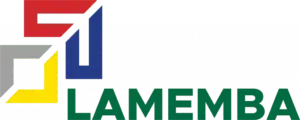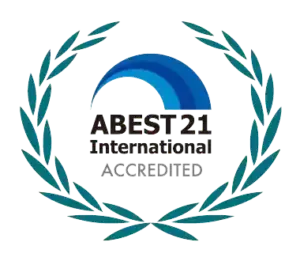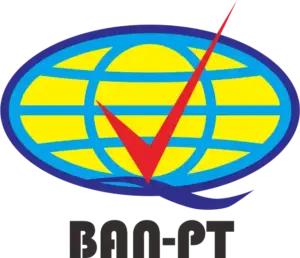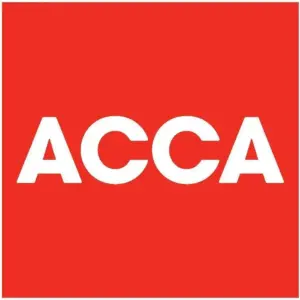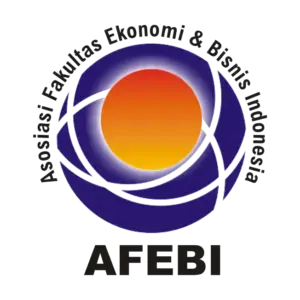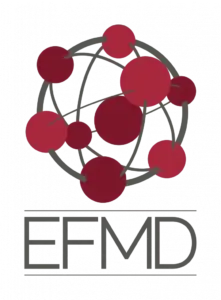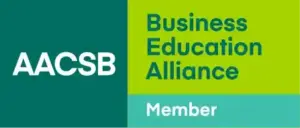
Aji Purba Trapsila, S.E.I., M.E.I., Ph.D.
Undergraduate Programme in Islamic Economics (PS EKIS) as a university, has a curriculum as a plan and arrangement regarding the objectives, content and teaching materials as well as the methods used as guidelines for organizing learning activities to achieve the goals of higher education. The curriculum as the direction and purpose of development has dynamics in an effort to achieve the expected goals. These dynamics are a consequence of the development of a society that can be accommodated.
Society is a dynamic institution. Dynamic occurs as a result of the growing demands of society and the need for a better life. Therefore, curriculum development is required to accommodate according to the times. For example, in the early decades of the 21st century there were several issues related to human resource development, including the following:
- Treatment of the Indonesian National Qualifications Framework (KKNI) and National Higher Education Standards.
- 2015 ASEAN Economic Community (ASEAN Economics Community 2015).
- Accommodating literacy development in accordance with Permendikbud No. 23 of 2015 concerning the growth of character
- Skills as required in the 21st century
In order to prepare graduates who are competent with the needs of the times, curriculum development for study Programmes is directed to answer emerging needs and challenges that student will face in the future. The rapid changes in social, cultural, world of work and information technology are some of the challenges that will be faced by all graduates. Therefore, in curriculum development, links and matches are needed, an innovative learning process is required to facilitate students in achieving optimal and relevant learning achievements.
- The curriculum of the PS EKIS in 2020 is a refinement of the curriculum from previous years. The curriculum contains a set of plans and arrangements regarding graduate learning outcomes, study materials, processes and assessments that are used as guidelines for the implementation of education in the Economics Study Programme. Curriculum Development refers to: Presidential Regulation of the Republic of Indonesia Number 8 of 2012 concerning the Indonesian National Qualifications Framework (KKNI).
- Ministry of Education and Culture Regulation Number 3 of 2020 concerning the National Standard for Higher Education (SN-DIKTI)
- Regulation of the Chancellor of the University of Brawijaya Number 34 of 2020 concerning the Curriculum of the Independent Study Programme Learning Independent Campus (MBKM).
Vision
“To become a higher education institution in the field of Islamic economics and finance with international standards and Indonesian cultural values”
Mission
- To implement advancements in education, research, and community service in the field of Islamic economics and finance through a critical, creative, and innovative thinking approach.
- To conduct and publish research and community service as well as other scientific activities for the development of applied economics in the field of Islamic economics.
- To enhance the competitiveness of graduates in the field of Islamic economics at both national and international levels.
Program Educational Objectives
The objective of the Undergraduate Programme in Islamic Economics is to produce graduates who work as Research Assistants, Staff in Islamic Finance and ZISWAF, Analyst Assistants in Islamic Economics, and Young Entrepreneurs, with the following competencies (PEO):
PEO 1: Capable of mastering Islamic Economics theory and apply to solve economic problems using Islamic Economics principles
PEO 2: Capable of developing themselves in a sustainable manner through research and education in the field of economics.
PEO 3: Capable of communicating orally and in writing, professionally, with character and ethics in the field of Islamic Economics.
The following is the profile of graduates of the Islamic Economics Study Programme
| Graduate Profile | Profile Description |
|---|---|
| Research assistant | Assigned in terms of assisting researchers in conducting research, development, and assessment of science and technology in research organizations, development and assessment of government/private institutions. |
| Staff in Islamic Finance and ZISWAF | Served as staff in the field of Islamic finance, both banks and non-banks as well as ZISWAF institutions that play a role in supporting economic activities |
| Assistant Analyst in Islamic Economics | Serves as an assistant analyst and consultant in the field of Islamic Economics who is able to plan, analyse, and compile reports on business planning and/or research in the field of Islamic Economics |
| Young entrepreneurs | Tasked with creating business opportunities in the field of Islamic Economics in supporting economic acceleration |
| Courses | Credits | ECTS | Type |
|---|---|---|---|
| Semester 1 | |||
| Religion (Islam) | 2 | 3 | C |
| Pancasila | 2 | 3 | C |
| Principles of Business Economics | 3 | 4.5 | C |
| Indonesian | 2 | 3 | C |
| Arabic | 2 | 3 | C |
| Civics | 2 | 3 | C |
| Introduction to Management | 3 | 4.5 | C |
| Introduction to Accounting | 3 | 4.5 | C |
| Economics and Business Mathematics I | 3 | 4.5 | C |
| Subtotal Semester 1 | 20 | 30 | |
| Semester 2 | |||
| Fiqh Muamalah | 3 | 4.5 | C |
| History of Islamic Economic Thought | 3 | 4.5 | C |
| Ushul Fiqh and Al-Qawaid Al Fiqhiyyah | 3 | 4.5 | C |
| Macroeconomics I | 3 | 4.5 | C |
| Microeconomics I | 3 | 4.5 | C |
| English | 2 | 3 | C |
| Statistics for Economics and Business I | 3 | 4.5 | C |
| Subtotal Semester 2 | 20 | 30 | |
| Semester 3 | |||
| History of Economic Thought | 3 | 4.5 | C |
| Monetary Economics I | 3 | 4.5 | C |
| Development Economics I | 3 | 4.5 | C |
| Macroeconomics II | 3 | 4.5 | C |
| Islamic Macroeconomics | 3 | 4.5 | C |
| Islamic Microeconomics | 3 | 4.5 | C |
| Microeconomics II | 3 | 4.5 | C |
| Econometrics I | 3 | 4.5 | C |
| Subtotal Semester 3 | 24 | 36 | |
| Semester 4 | |||
| Fiqh Maghrib | 3 | 4.5 | C |
| Islamic Monetary Economics | 3 | 4.5 | C |
| Islamic Development Economics | 3 | 4.5 | C |
| Institutional Economics | 3 | 4.5 | C |
| Indonesian Economy | 3 | 4.5 | C |
| Public Economics I | 3 | 4.5 | C |
| Introduction to Data Science for Economics and business | 3 | 4.5 | C |
| Islamic Research Methodology | 3 | 4.5 | C |
| Subtotal Semester 4 | 24 | 36 | |
| Short Semester | |||
| Community Project | 4 | 6 | C |
| Subtotal | 4 | 6 | |
| Semester 5 | |||
| Entrepreneurship | 2 | 3 | C |
| Islamic Institutional Economics | 3 | 4.5 | C |
| Multivariate Statistics for Economics and Business | 3 | 4.5 | C |
| Critical Thinking Logic | 3 | 4.5 | C |
| Islamic Finance and Banking | |||
| ZISWAF Economics | 3 | 4.5 | C |
| Economics of Islamic Banking & Financial Institutions | 3 | 4.5 | C |
| Financial Management | 3 | 4.5 | C |
| Financial Report Analysis | 3 | 4.5 | C |
| Halal Industry | |||
| Halal Industrial Economy | 3 | 4.5 | C |
| Islamic Business Management | 3 | 4.5 | C |
| Sharia Financial Accounting | 3 | 4.5 | C |
| Islamic Business Feasibility Study | 3 | 4.5 | C |
| Subtotal Semester 5 | 23 | 34.5 | |
| Semester 6 | |||
| Digital Economy | 3 | 4.5 | E |
| Islamic Finance & Investment Theory | 3 | 4.5 | E |
| Risk Management of Islamic Financial Institutions | 3 | 4.5 | E |
| Cooperative Economy | 3 | 4.5 | E |
| Islamic Public Finance | 3 | 4.5 | E |
| Computer Applications in Islamic Finance & Banking | 3 | 4.5 | E |
| Accounting for Islamic Financial Institutions | 3 | 4.5 | E |
| Islamic Financing Management | 3 | 4.5 | E |
| Islamic Regulatory Economics | 3 | 4.5 | E |
| Strategic Islamic Management | 3 | 4.5 | E |
| Islamic Marketing Management | 3 | 4.5 | E |
| International Islamic Economics and Finance | 3 | 4.5 | E |
| Management of Islamic Microfinance Institutions | 3 | 4.5 | E |
| Islamic Business Law | 3 | 4.5 | E |
| Entrepreneurship and Islamic Business Ethics | 3 | 4.5 | E |
| Subtotal Semester 6 | 20 | 30 | |
| Semester 7 | |||
| Minor Thesis | 6 | 9 | C |
| Academic Research Seminar | 3 | 4.5 | C |
| Subtotal Semester 7 | 9 | 13.5 | |
| Total credits of Compulsory Courses | 124 | ||
| Total Credits of Elective Courses | 20 | ||
| Total credits of Semester 1-7 | 144 | ||
| No | Position | Name |
| 1 | Professor | Prof.Dr. AGUS SUMAN, SE., DEA. |
| 2 | Professor | Prof.Dr. Dra. ASFI MANZILATI, ME. |
| 3 | Professor | Prof.DEVANTO SHASTA PRATOMO, S.E., M.Si., Ph.D. |
| 4 | Professor | Prof.Dr. M. PUDJIHARDJO, S.E., M.S. |
| 5 | Professor | Prof.Dr. MARYUNANI, SE., MS. |
| 6 | Professor | Prof.Dr. Drs. M. UMAR BURHAN, MS. |
| 7 | Professor | Prof.Dr. MUNAWAR, SE., DEA. |
| 8 | Professor | Prof.SETYO TRI WAHYUDI, SE., M.Ec., Ph.D. |
| 9 | Associate Professor | Dr. Drs. ISWAN NOOR, ME. |
| 10 | Associate Professor | Dr. SRI MULJANINGSIH, SE., MSP. |
| 11 | Associate Professor | DWI BUDI SANTOSO, SE., MS., Ph.D. |
| 12 | Assistant Professor | AMINNULLAH ACHMAD MUTTAQIN, M.Sc., Fin. |
| 13 | Assistant Professor | FAISHAL FADLI, S.E., M.E., Ph.D. |
| 14 | Assistant Professor | Dra. MARLINA EKAWATY, M.Si., Ph. D. |
| 15 | Assistant Professor | Dr. NURUL BADRIYAH, S.E., M.E. |
| 16 | Assistant Professor | Dr.rer.pol. WILDAN SYAFITRI, SE., ME. |
| 17 | Assistant Professor | Dr.rer.pol. FERRY PRASETYIA, SE., M.App.Ec. |
| 18 | Assistant Professor | FARAH WULANDARI PANGESTUTY, S.E., M.E., Ph.D. |
| 19 | Lecturer | AJENG KARTIKA GALUH, S.E., M.E. |
| 20 | Lecturer | DWI RETNO WIDIYANTI, SE.I., M.Sc. |
| 21 | Lecturer | GIRINDRA MEGA PAKSI, S.E., M.E. |
| 22 | Lecturer | IKA KHUSNIA ANGGRAINI, S.HI., M.H.I. |
| 23 | Lecturer | LAILA MASRURO PIMADA, S.E., M.S.E.I. |
| 24 | Lecturer | MOH. ATHOILLAH, S.E., M.E. |
| 25 | Lecturer | NUGROHO SURYO BINTORO, S.E., M.Ec.Dev., Ph.D. |
| 26 | Lecturer | YENNY KORNITASARI, S.E., M.E. |
| 27 | Lecturer | INDRI SUPRIANI, S.E., M.SEI. |
| 28 | Lecturer | MUHAMMAD DANDY ALIF WILDANA, S.E., M.Sc.IBF. |
| 29 | Lecturer | CITRA RAHAYU INDRASWARI, S.EI., M.SEI. |


